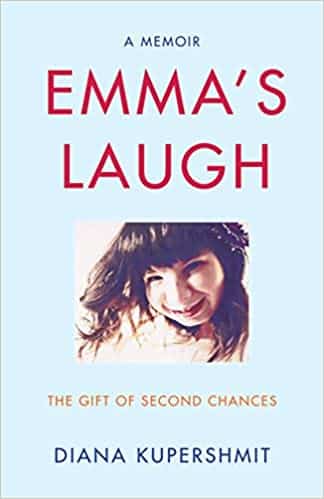by Lee Ann Cox
There’s a 20-year-old photo of me rolling out dough on a floured pastry board while wearing my son in a backpack. I was creating his first birthday cake.
The idea was sparked long before that moment, as I thumbed through the pages of the Martha Stewart catalogue, lingering over a set of oversized copper cookie cutters, a whimsical menagerie that included a bear, an alligator, a donkey, a dove. They were absurdly large, but then so was I, pregnant with this baby. I didn’t yet know what it would mean to balance a food writing career with an infant who merely dallied with the notion of sleep. I only knew the cookie cutters were adorable, a splurge, and I had to have them.
As the birthday neared and my vision for the project crystalized, I was fortunate that my husband’s parents were visiting from California; I had three adults to help distract my son as I set to work. I began by making quantities of sugar cookie dough to the sound of Bay’s chortling from the front room as he knocked down towers of blocks. His mood didn’t hold, hence the backpack.
I chilled and rolled the dough thick enough to achieve a sturdy giraffe whose head would not break loose from its slender neck. Soon an unadorned zoo sprawled on racks around our farmhouse kitchen while I made icing of pale yellow, deep sky blue, sea glass green. I mixed two consistencies of each color, one thick to outline the shape, forming a dam to hold the flood of flawless liquid color. Once set, I piped manes and claws on lions, fluffy wool on sheep, an intricate caparison for an elephant adorned with various colors of sanding sugar I had mixed myself.
Of course, this was to be a cake, so I picked a family favorite, vanilla with the layers split and alternately spread with lemon curd and cream cheese frosting. To achieve my fever dream of perfection, though, I needed two cakes of different sizes to stack, supported by wooden dowels. Over the course of a couple days, I had concocted a child’s version of a tiered wedding cake, graced, not by a spray of elegant flowers or ironic plastic newlyweds, but by a double carousel of handmade edible animals, each unique, one cuter than the next.
“Mom are you high?” my daughter would say now. I must have been undone.
This cake, I need to say, was not the centerpiece of an overdone celebration with too many presents and too many people; no hordes of aunts, uncles, and cousins were coming to admire my two creations. It was just us and a close friend and baby from playgroup. That eases my embarrassment and heightens my wonder at the forces that drive me. The birthday boy was too young to be enchanted by this cake (nor, it turns out, would any confection not chocolate ever achieve that standard). But when my husband held Bay aloft to blow out his single candle, both of them grinning, my camera shuttered on a moment of pure beauty.
*
Time spun out from there. Bay turned 18 having spent equal parts of his life with and without his dad, who died young of a rare cancer. On this birthday, the cake was a basic, rich chocolate number; his dinner request was the two-day cooking festival: the tagliatelle with braised lamb ragu he’d had in New York, helpfully codified in The Frankies Spuntino Kitchen Companion and Cooking Manual, a book I highly recommend for the recipes and the writing. Even for a dish whose steps are helpfully divided into “Day 1” and “Day 2,” the authors charm you through the process, suggesting a flip of the lamb mid-roast “if you think of it” and, later, to remove the meat from the stock so it can rest and “regain its composure,” suggestions I recommend for the cook as well.
I bought my lamb and bones from a local Vermont farm, filled my basket with onions, carrots, fennel, and tarragon. I roasted and braised. I made the Frankies tomato sauce, a simple affair, demanding only devotion (along with your good olive oil and the best Italian tomatoes). “Take your time—there’s no rushing it… when you’re cooking the garlic, you want to very, very slowly convert the starches in it to sugars and then to caramelize those sugars. Slow and steady.”
By the second afternoon, I skimmed my lamb broth of fat in favor of fresh butter that married the tomato and lamb concoctions, finally, into a sensuous, swoony situation, like the ones that really should come from restaurants.
I will confess how the years have changed me, especially as I was also the one to make the cake and wrap the presents and parent the son and also his little sister. (First, no, she did not get a two-tiered carousel cake, an already preposterous enterprise without a baby, a toddler, a job, and a 130-pound Newfie upending the kitchen for any unmonitored morsel of food, but she has not been denied her share of fanciful cakes.) I dismissed the Frankies’ instruction to make a double recipe of Basic Pasta Dough from page 94, cut into tagliatelle. I bought the pasta.
*
Nearly a year later, I made the ragu again for my son’s farewell dinner before he left for college, 3,000 miles from home. I felt from the tender ache of my own bones as if they were rendered into that stew, an amalgam of everything I put in it, lovingly tended, and every hope I had for what it would yield. I hid my tears and fed the dreams we both shared, of joy and challenge, adventure and a new sense of belonging.
And then, abruptly, he was home. The pandemic put it all on ice, suspended him between two worlds.
With third-quarter finals cancelled and an extended spring break, Bay came to the kitchen. “Mom, I think we should cook something.” His grin suggested that it would not be banana bread.
“Watch this video with me,” he said, reaching for my laptop and pulling up Joshua Weissman’s YouTube page, introducing me to the obsessive food phenom with nearly three million followers. “Making the Popeyes Chicken Sandwich at Home, But Better” was Bay’s fixation; we would hit play and pause on that video uncountable times.
The next afternoon we got started, beginning with the Japanese milk buns (which begin with making the tangzhong). We mixed up our marinade, our spiced dredging flour, and our sauce, albeit without the optional oyster mushroom powder, and, more critically, and ashamedly, the black garlic—it’s clear now we had the time to start aging our own ingredients, since he wouldn’t return to school, but we lacked that kind of patience.
We did choose the largest boneless thighs we could find, properly slice our pickles lengthwise for maximum coverage, and toast the truly amazing buns. I taught my son how to deep fry. And I acquainted him with the fact that, no matter how much you clean as you go, the exalted experience at the table will temper at the sight of a grease-splattered stove and the general havoc wreaked preparing a plated meal. The regret, like the mess, is temporary.
*
For two decades I’ve thought about that birthday cake, wondered if there was an impulse behind it beyond what food writer Tamar Adler, in a recent essay I admired, called “a peacocky presentation of leisure time and skill.” I won’t argue there wasn’t a tinge of that, but if it was for anyone, honestly, it was me. I know it’s more, though, that I wasn’t quite kidding about being undone.
I feel so vulnerable at times, on the knife’s edge of joy and heartache. My infant son turns one, then moves far away. My infant daughter turns two with a party held in a hospital lounge near her dad’s room, then she’s a beautiful, maddeningly sassy teenager. The weave of love, longing, and potential loss is gossamer silk and the instinct to protect is fierce, tireless effort. That takes me to the kitchen. The sense of control is a mirage, but there’s art in the attempt and at the end you have dinner, or, even better, cake.
The crazy thing about COVID is that it upends the promise I made myself years ago to try to keep my anxieties and fears from infecting my kids. What I want—on my best, bravest days—is for them to live big, juicy, connected lives, for their regrets to be few, especially for experiences they didn’t seize. Now we’re told to hide our children at home and mask them from danger. There was a moment’s appeal in that, my deepest instincts sanctioned.
Mid-March was like the first hour or so of losing electricity—candlelight Scrabble and toasting marshmallows over a gas flame—before the melting down, before we met the grief spilling out from every angle of this disaster. There are worse things, to be sure, but I ache for my kids, for everyone’s. Instead of testing boundaries, they’re circumscribed by them.
At the end of the summer though, my son, unable to return to college in the fall, quarantined and then met up in a central location with his would-have-been roommates in an Airbnb for a week. Bay texted a photo of the meal he made for his friends: better-than-Popeyes’ fried chicken sandwiches. He had made the buns himself, crisped the coating on the tender thighs to tanned perfection, slathered on his homemade spicy sauce.
I imagine those big blue eyes gazing over my shoulder from his backpack, absorbing my need, the protective pulse that drove my energy. With food, he would now nurture the fledgling life he’d begun, hoping the web holds through untold months ahead in Zoomland. And sure, I’m guessing there was a serious dash of peacockiness behind it, too. I mean, that was an insane amount of work.
Lee Ann Cox is a Vermont-based writer whose work has appeared in Salon and The Rumpus, among other publications. She is a recipient of the Center for Fiction’s Christopher Doheny Award for the manuscript of my memoir Beauty Like That, as well as a Vermont Arts Council creation grant.
~~~~~~~~~~~~~~~~~~~~~~~~~~~
Stories of parent/child relationships can be complex, and Emma’s Laugh, The Gift of Second Chances, is no exception. Convinced of her inability to love her “imperfect” child and give her the best care and life she deserved, Diana gave Emma up for adoption. But as with all things that are meant to be, Emma found her way back home. As Emma grew, Diana watched her live life determinedly and unapologetically, radiating love always. Emma evolved from a survivor to a warrior, and the little girl that Diana didn’t think she could love enough rearranged her heart. In her short eighteen years of life, Emma gifted her family the indelible lesson of the healing and redemptive power of love.
Read Diana’s ManifestStation essay here
Order the book from Amazon or Bookshop.org
~~~~~~~~~~~~~~~~~~~~~~~~~~~
Anti-racist resources, because silence is not an option
~~~~~~~~~~~~~~~~~~~~~~~~~~~



